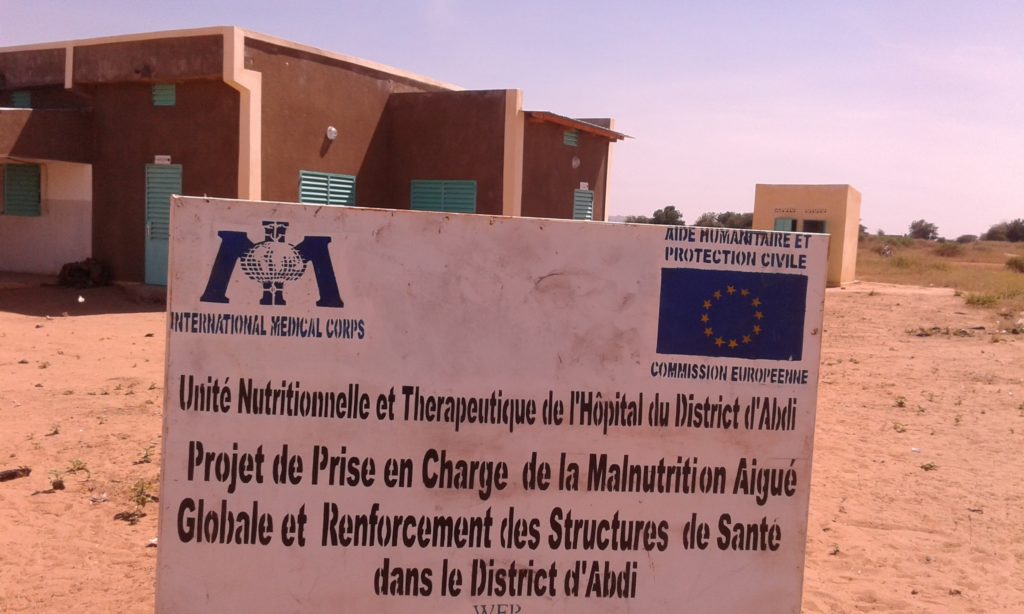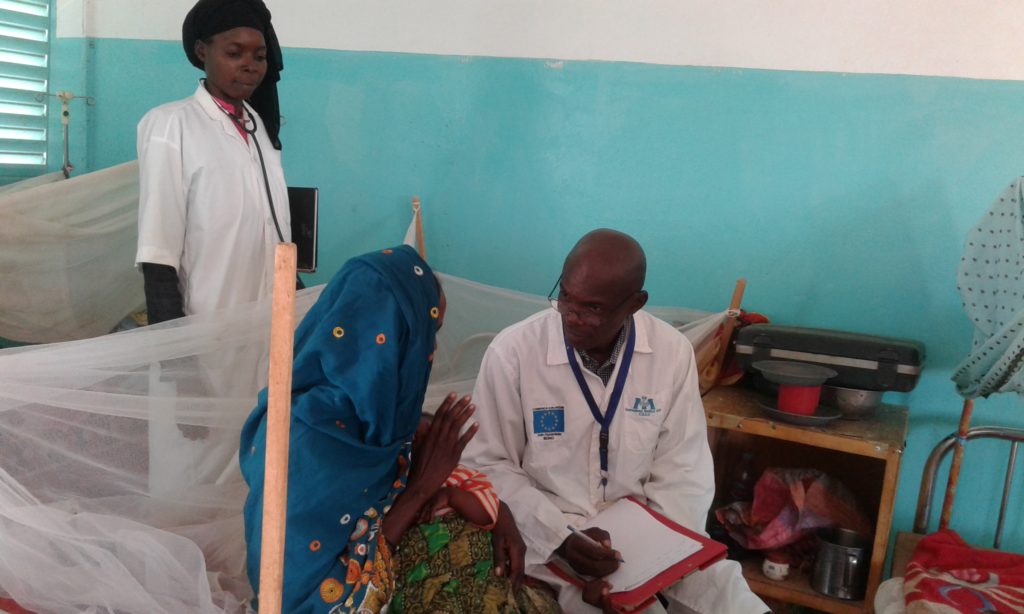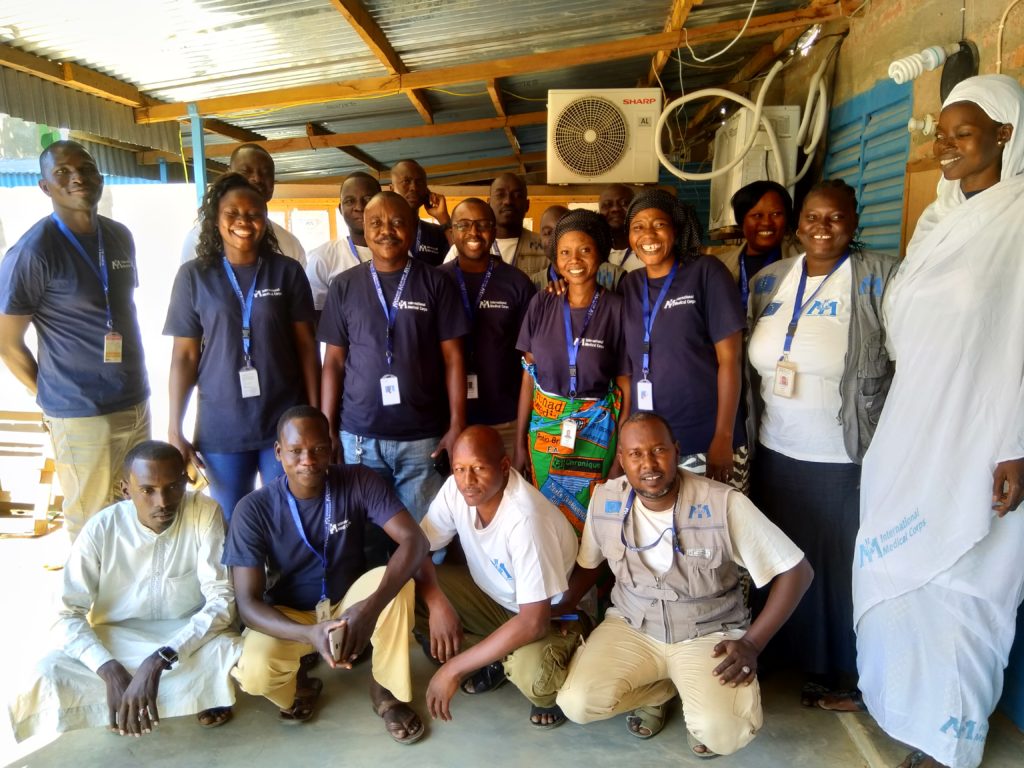International Medical Corps’ Dr. Yacouba Diarra describes the health district of Abdi in eastern Chad as dangerously fragile. Sadly, this situation is not isolated to Abdi; it exists throughout the country.

Chad faces several fundamental battles that pose a threat to health. More than 4 million people don’t have access to clean water or secure sources of food, a situation that fuels such illnesses as diarrhea and malnutrition, which run rampant across the country.
In addition, the conflict and instability that haunt this part of Africa loom over Chad. In recent years, more than 446,000 people from Sudan and the Central African Republic have sought refuge in the country, placing further demand on a healthcare system that is already cracking under the weight of the country’s own medical needs. For comparison, in the United Kingdom, there is on average one doctor per 27,000 people. In contrast, Abdi—with a population of 141,957—has just one.
With health workers scarce, the need for reliable and safe health facilities is even greater. Tragically, in Abdi, this is a need that is not met.
Working in a small part of Abdi Health Centre—built with wooden boards and reinforced with mud bricks—the inundated medical team of 13 are not only fighting against a torrent of illnesses, but are doing so in extremely troublesome conditions.
For many in Chad, just reaching a health center can prove to be a fatal challenge. Once there, the struggle continues. The number of those in urgent need of assistance far outnumbers the health workers available—meaning that Abdi’s devoted medical team is frequently overwhelmed. They are faced with a daunting mission: to distribute what little help there is to a very large amount of people, in a part of the world coping not only with vast malnutrition but deadly diseases like malaria.

This is why for the last three years International Medical Corps has supported Chad’s public healthcare system with a team comprising 12 nurses, eight midwives and a doctor, ensuring that 14 health centres benefitted from an increase in qualified medical staff. Previously underequipped teams also were provided with crucial medicines and essential medical equipment, significantly increasing the capacity of their lifesaving work.
With this support, the medical staff in Abdi have helped 334,116 people with nutrition services, transported ill children to health centres they otherwise may not have reached and supported the vaccination of 42,253 children. These children are now no longer at risk of such diseases as tetanus, polio and measles—which, if untreated, have devastating complications and can even cause death. In a country where people are dying from preventable diseases, these numbers show an incredible step forward. But the progress does not stop there.
Beyond the walls of the medical facilities, International Medical Corps staff have trained 4,239 people and reached 285,568 people through awareness sessions that have enabled community members to develop their skills surrounding the prevention of infection, the detection of illness and disease, and the importance of using health services, for both themselves and those around them. Mother-to-mother support groups now run between women who have observed good child-feeding practices and others with whom they wish to share this information. Mothers of children under five are now at the forefront of the battle against malnutrition, having received training from International Medical Corps on how they can measure children’s heads to identify signs of malnourishment. Ability to detect signs early, combined with effectively functioning health centres, have transformed the situation in Abdi and helped International Medical Corps’ efforts to reduce malnutrition and strengthen the local health system.
Before International Medical Corps began providing services, medical professionals in Abdi were tackling several independently troubling problems with little more than their own hard work and determination. But the addition of equipment and staff have fuelled the development of a more robust and successful system that is in place for the people of Abdi who need it most.
International Medical Corps has helped the community of Abdi bridge the gap in its healthcare system—leaving a legacy of skills that will benefit generations to come.
